
Many people work hard for months to get a summer body. Then summer comes and all of that healthy eating and exercising several times a week is replaced by beach parties, picnics, and backyard barbecues. The menu options seem endless and it’s easy to lose track of how much unhealthy food people are actually consuming.
This is not to say the occasional ice cream cone or peach cobbler is off limits. Nutrition is individualized — what works for some people trying to lose weight may not work for others — but the 80/20 rule can help. You can eat healthily 80% of the time and still see results.
A common mistake people make while either trying to lose weight or maintain a slimmer figure is focusing on exercising, Younkin noted. “When clients come to me, they’re focused more on exercise than on food,” she said. “Once we address the nutrition they see results.”
Too many times the problem is that Americans are just not listening to the experts — and it shows. They are eating more of these foods, disregarding the damage they do to the body.
But determining which foods and drinks are better than others can be difficult. There is so much to consider – calories, sugar, sodium, fat content. And different people need different amounts of these ingredients a day.
Losing weight is not rocket science. While vegetables and fruits are indisputably better options than fries and candy, some foods are much more complicated. This is also why some foods are considered unhealthy even though this may not be a fair description. Here are 25 junk foods that are actually not so bad for you.
Click here to learn about summer snacks that are actually ruining your diet
To compile a list of 25 popular summer foods that may be sabotaging one’s diet, 24/7 Tempo consulted several nutritionists and reviewed several online sources such as the National Institutes of Health and Harvard School of Public Health.

1. Low-fat, low-calorie foods
“Reduced ‘whatever’ products contribute to overeating,” Alexis Penney, a registered dietitian at Shanti Nutrition in Boston said. In essence, you’re trying to trick your body into thinking it’s eating the same thing but with fewer calories. “But your body is smart and ends up looking for those calories elsewhere to make up for it.” Also, in the Mediterranean countries, she noted, where some of the healthiest people live, they eat full fat products, but their portions are smaller. “I find this to be the sweet spot,” Penney said. Choose the real thing and eat less of it. You’ll feel more satisfied all around.
[in-text-ad]
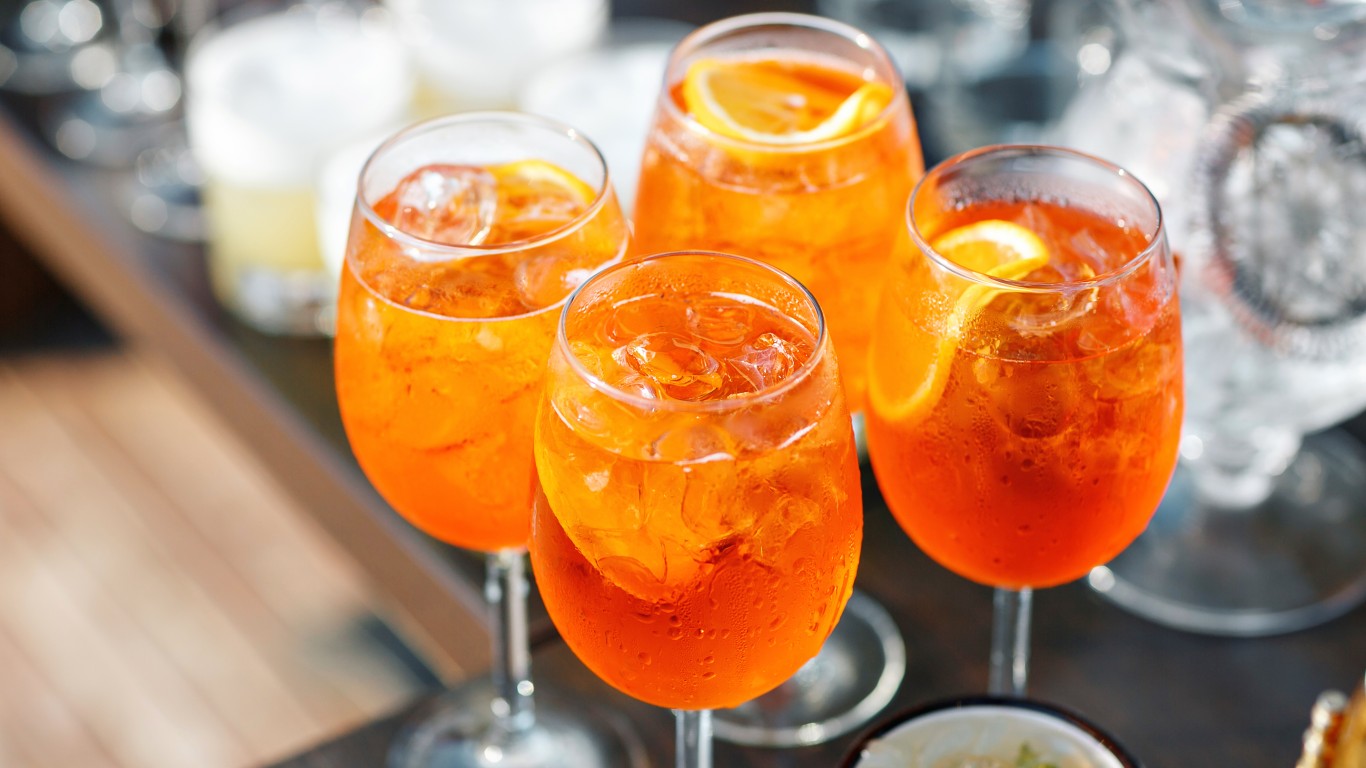
2. Summer cocktails
“It’s not always the amount of calories but the type of calorie,” said Lainey Younkin, a registered dietitian at Lainey Younkin Nutrition in Boston. Calories consumed from alcoholic beverages are often referred to as “empty calories.” Cutting out alcohol is often recommended for people who are trying to lose weight because alcoholic drinks contain a lot of calories — 7 per gram, compared to 4 in protein and carbs — and people tend to eat unhealthy foods with alcohol.
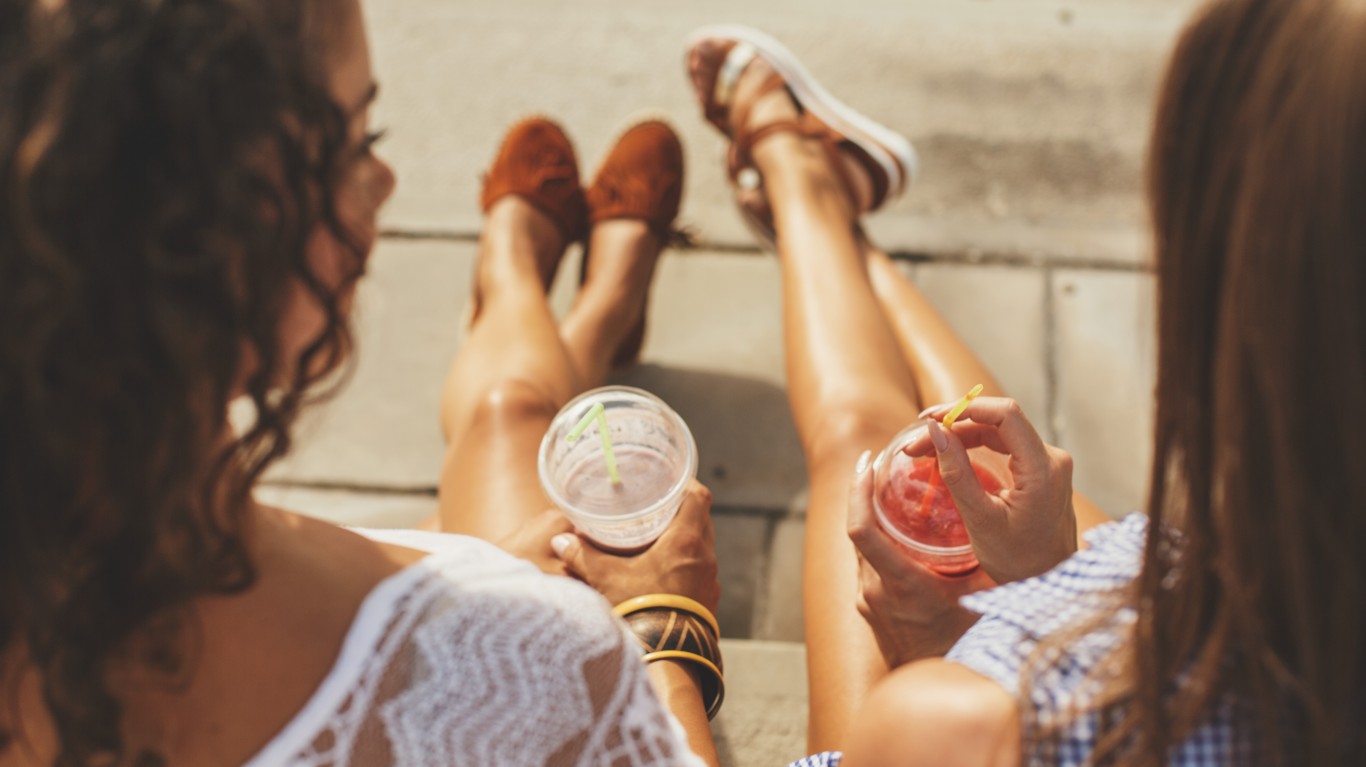
3. Store-bought smoothies
Few drinks seem to be better than a smoothie in the summer. It’s cold and it has fruits and vegetables, which makes it healthy, right? In some cases. Many store-bought smoothies are high in sugar, according to Younkin. “You’re best off making your own with 1-2 servings of fruit, some protein like nut butter, Greek yogurt, or protein powder, and healthy fat like avocado, nut butter, or flaxseed.”
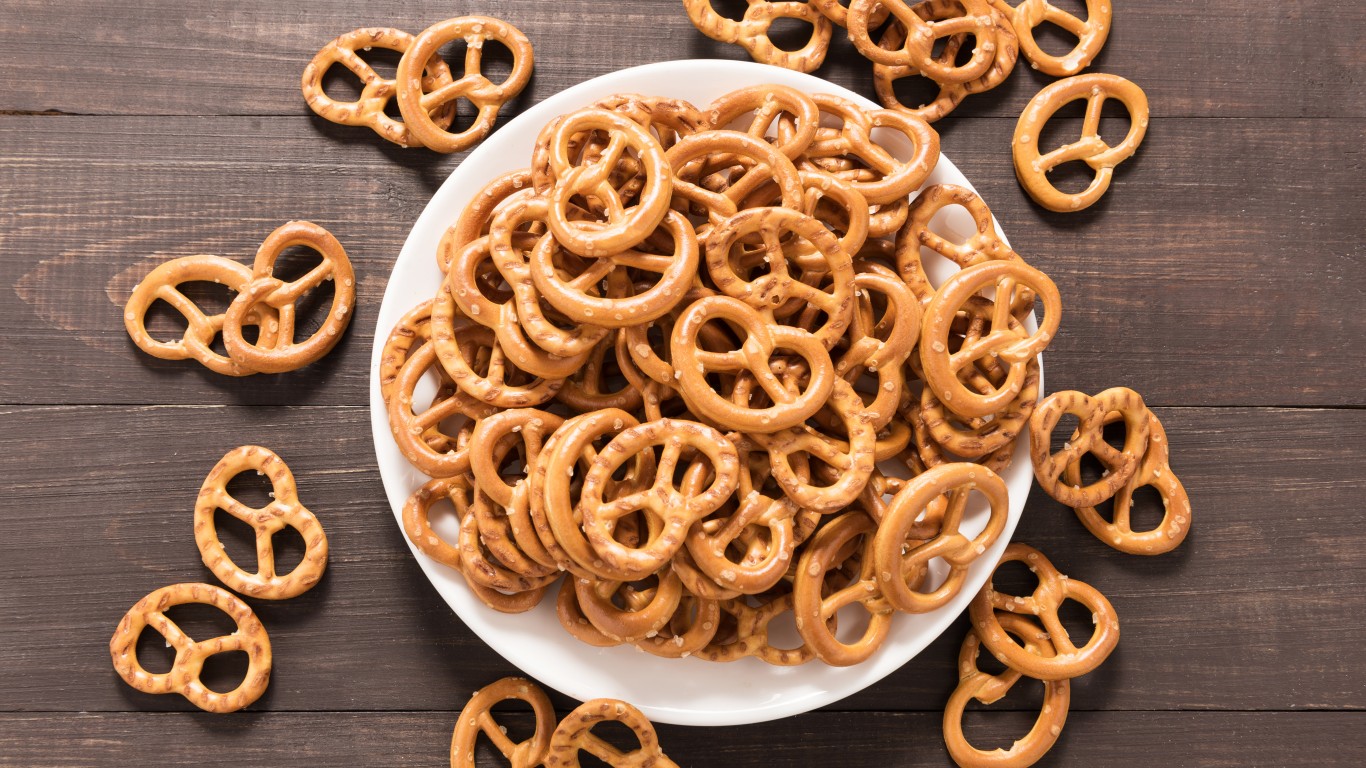
4. Pretzels
Pretzels may originate from Germany, but they are an American staple food now. Americans love them so much they even have pretzel-eating rituals. This fulfilling snack is omnipresent — at sporting events, the beach, bars, and even on the street. But maybe sometimes they should be avoided. “I don’t like my clients eating a ton of processed food because of its ingredients and high calorie content,” said Gabriela Rivera, a nutritionist practicing with clinical nutritionist Kay Spears in San Antonio, Texas.
[in-text-ad-2]
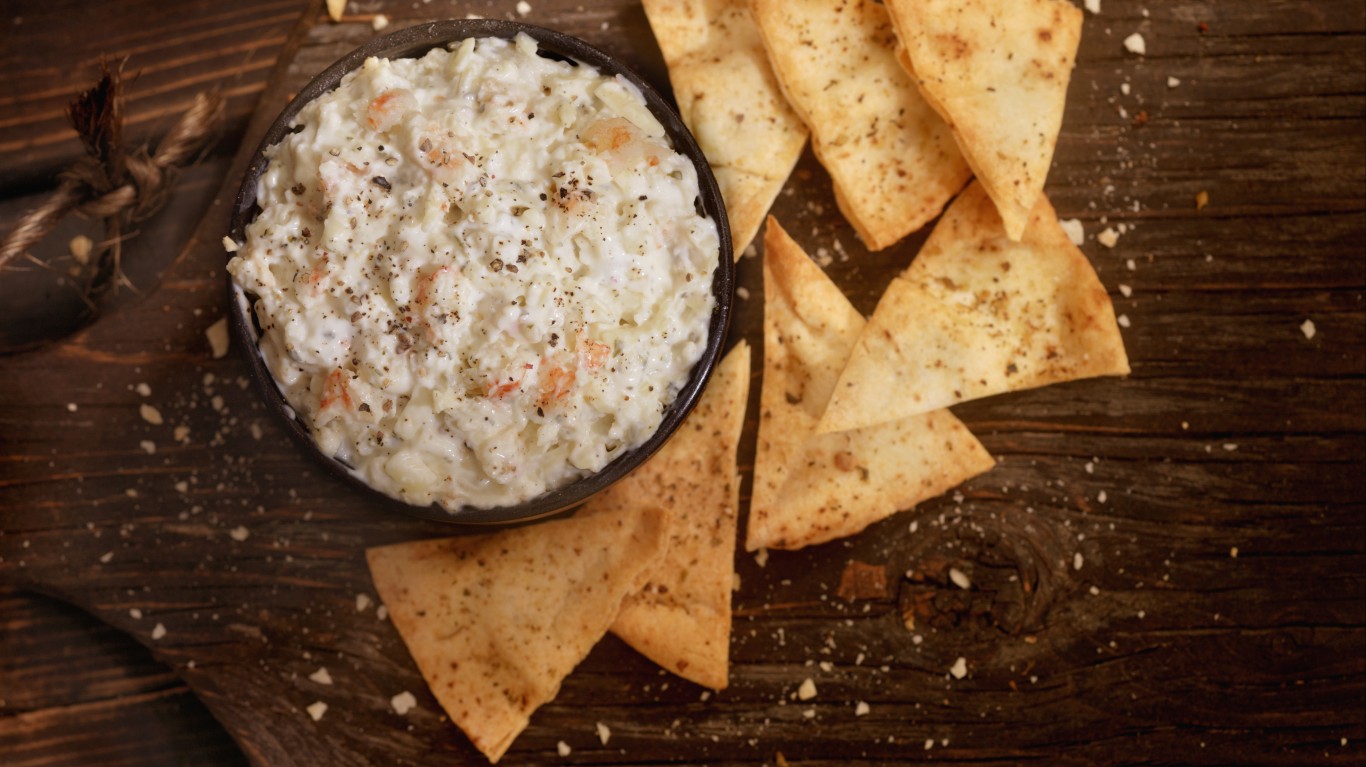
5. Pita chips
Have you been to a summer party where pita chips and hummus were not served as an appetizer? Rivera said she would not usually recommend pita chips to her weight-loss clients for the simple fact that “if not careful, a lot of them can be eaten and cause a caloric surplus.” They are also highly processed and usually high in sodium, she noted.
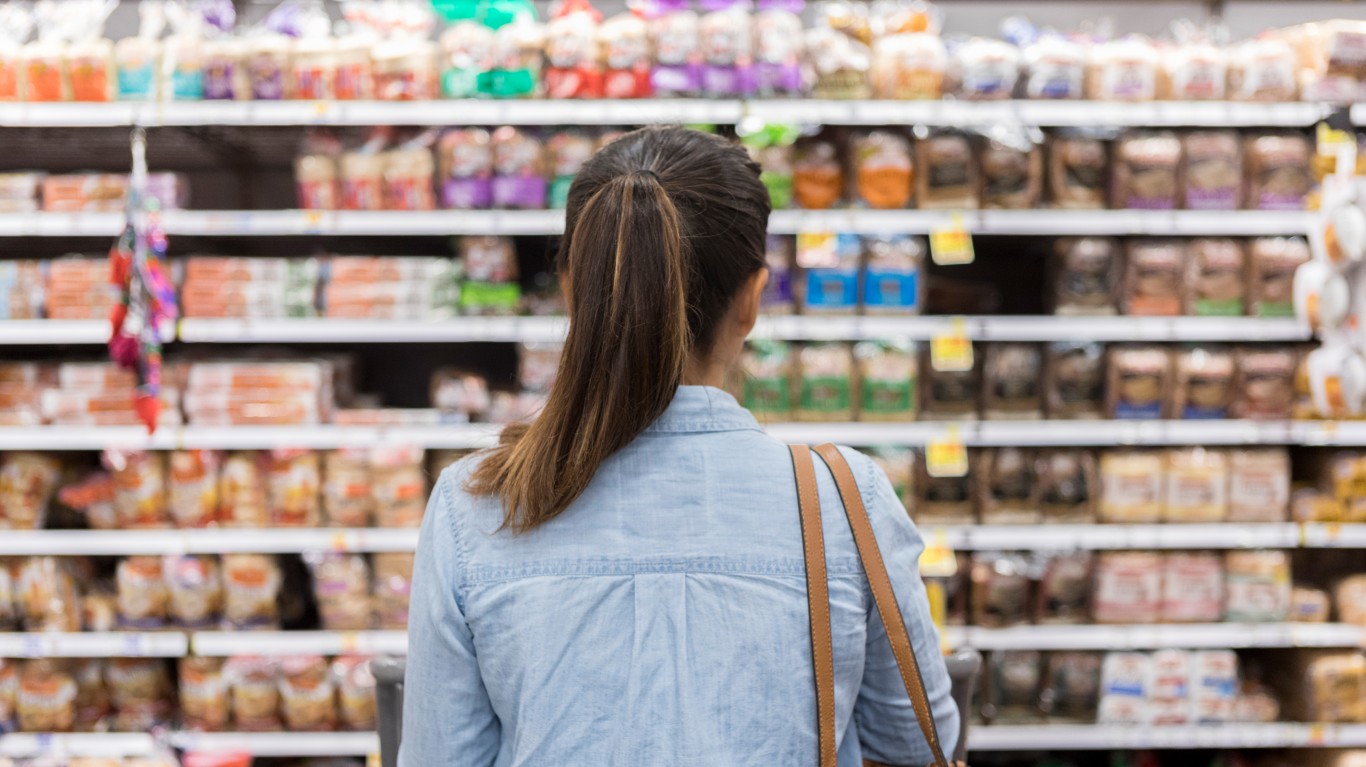
6. Whole wheat bread
“Whole wheat breads and pastas are okay for someone who is trying to lose weight if eaten correctly,” Rivera said. This mainly means watching the serving size. When it comes to these types of carbohydrates, people have to be mindful of how much they are eating and should look at the nutrition label for sugar and sodium content, she added.
[in-text-ad]

7. Some frozen foods
Frozen foods seem like an ideal option in the summer. No need to make the room hotter by cooking food, you just warm them up. They are very convenient; however, Rivera said, they are usually packed with high amounts of sodium for preservation. “I recommend my weight-loss clients to opt for no-salt-added frozen veggies or no-sugar-added frozen fruits.” Other types of frozen foods would not be recommended for someone in a weight-loss phase, she noted.

8. Cereals
Cereals are so popular for breakfast that trying to pick the right brand can be difficult. Most have one thing in common — added sugar. “For all of my weight loss clients I recommend not buying cereals for the simple fact that most have high sugar content,” Rivera said. She also pointed out that calories from cereal could add up especially quickly if serving sizes are not observed.
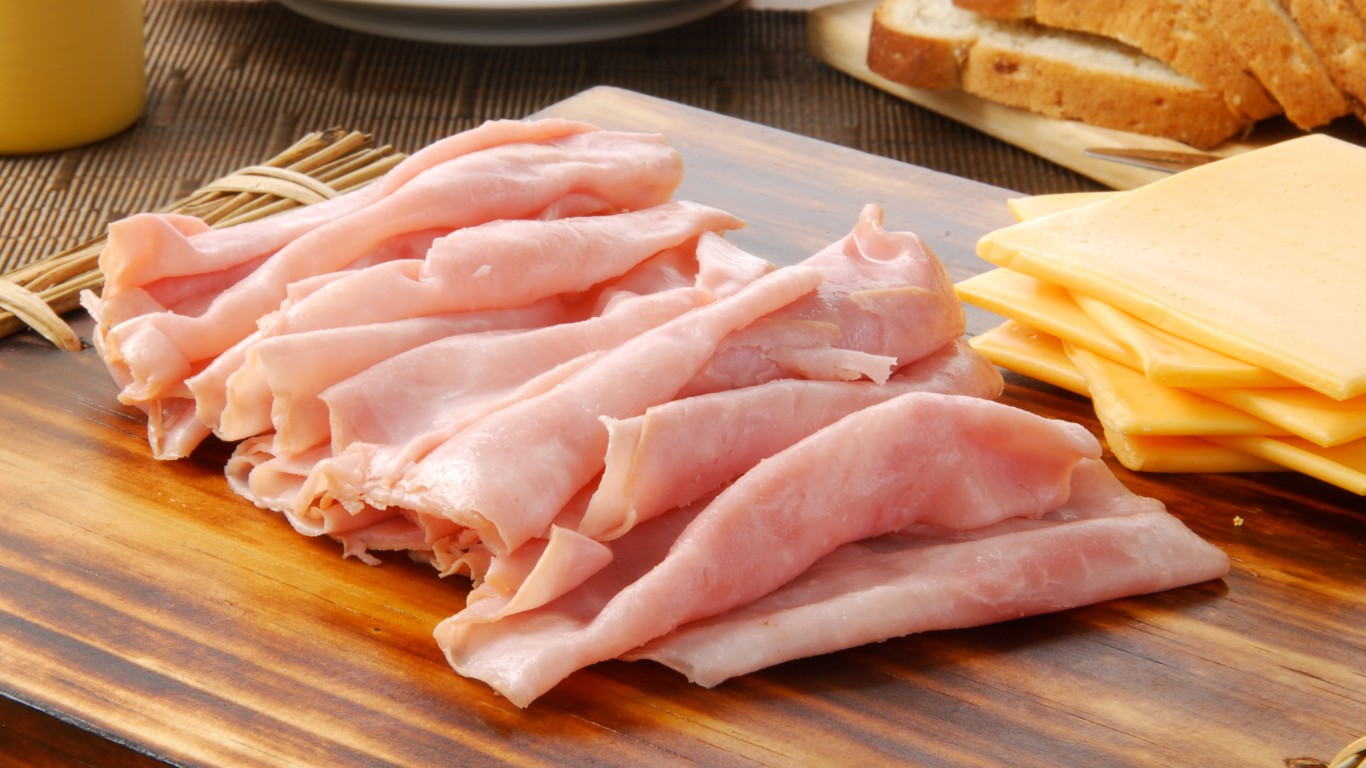
9. Deli meats
Deli meats are usually not ideal for someone who is trying to lose weight because of their high sodium content, Rivera said. “Consumption of high sodium can cause water retention and could cause frustration to a client who doesn’t see the scale moving.” A study at Queen Mary University in London found a link between obesity and sodium intake. For every extra gram of salt a person consumes in a day — that’s about four teaspoons — his or her risk of becoming obese increases by 25%.
[in-text-ad-2]
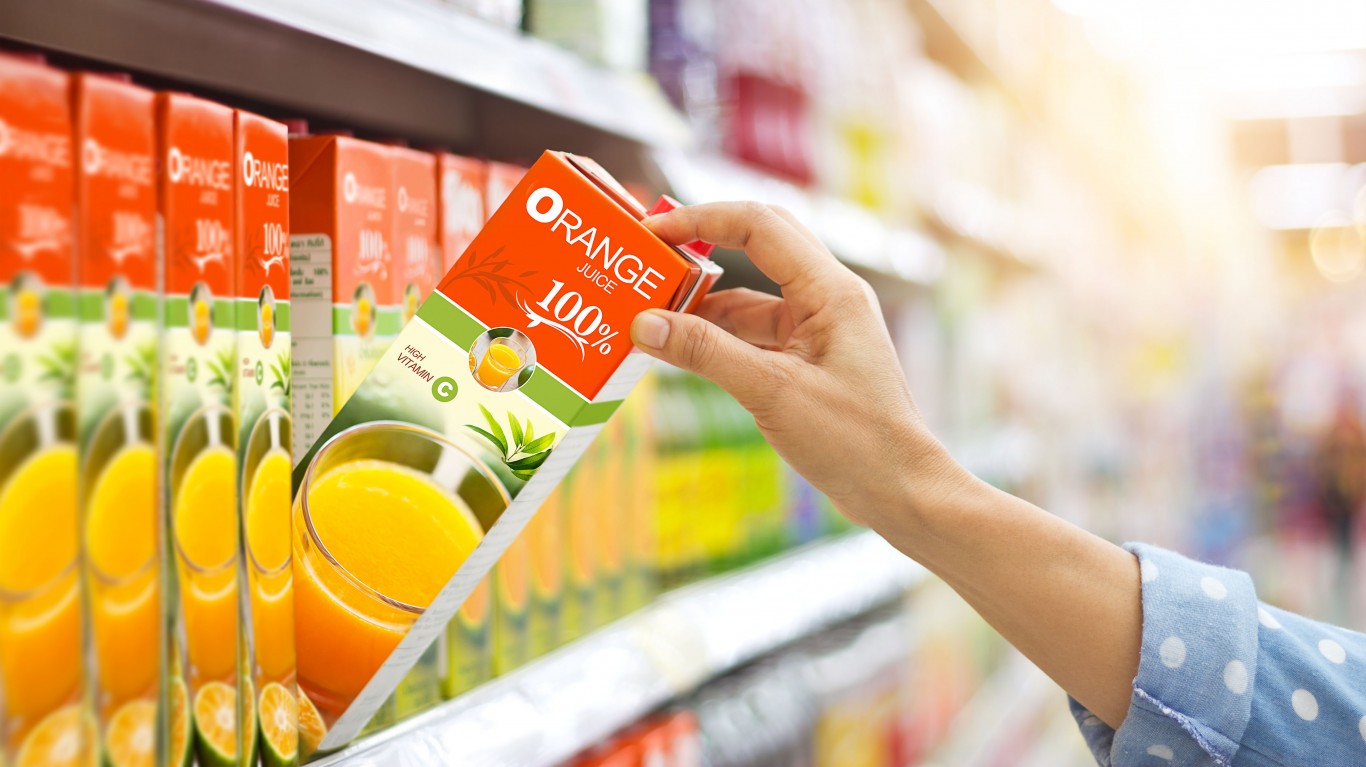
10. Fruit juice
You know you have to stay hydrated when it’s hot but drinking plain ol’ water all the time can get somewhat boring. Who can blame you for wanting to spice things up with something cold and sweet? That drink maybe should not be fruit juice. It isn’t ideal for someone trying to lose weight because of its added sugar, Rivera said. “If the nutrition label is misread, a lot more calories can be consumed.” Take a look at the added sugar and serving size.
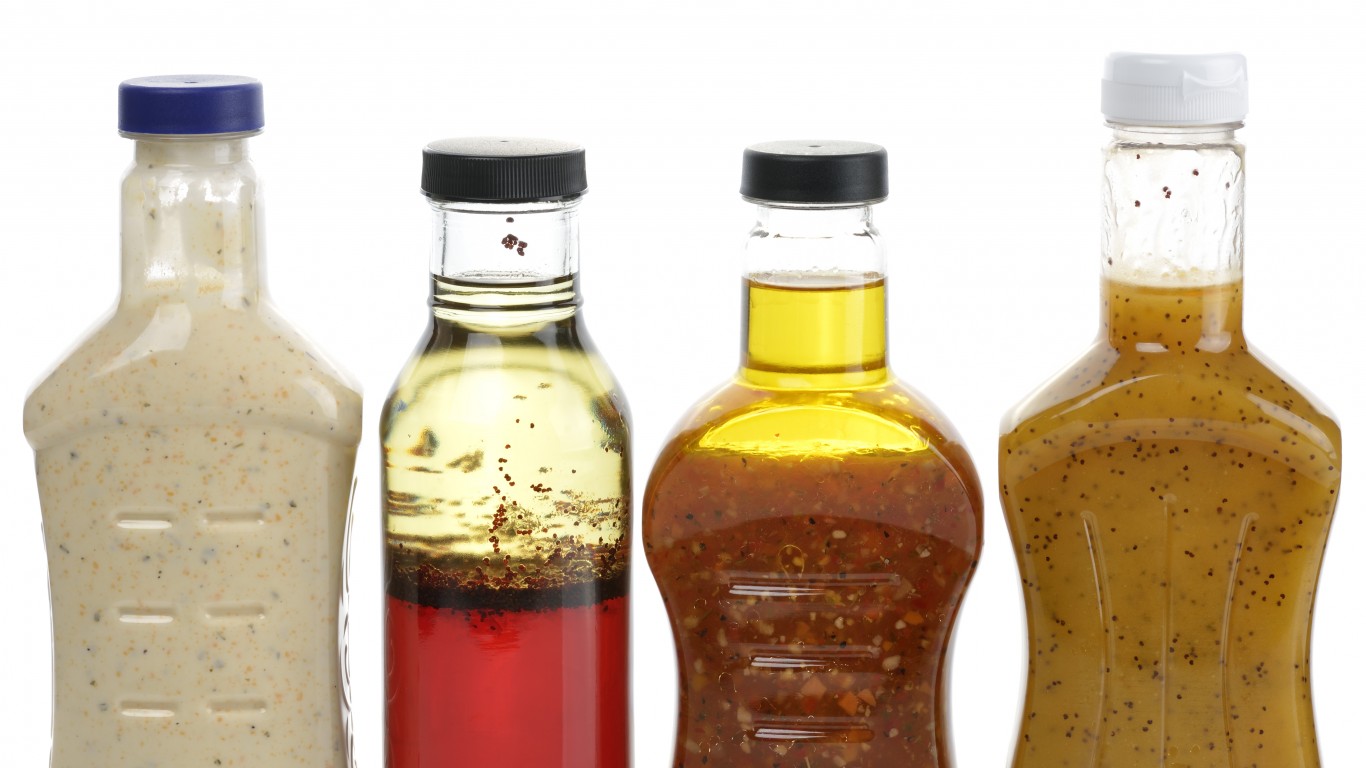
11. Store-bought salad dressings
Most salads are a healthy choice not just in the summer. But store-bought salad dressings are often hard to pick when trying to lose weight, Rivera said. The issue with salad dressings is that they can be very high in calories, she noted. “I always recommend making at-home salad dressings.” However, she noted, if she had to recommend a specific store-bought dressing, it would be a yogurt-based dressing.
[in-text-ad]
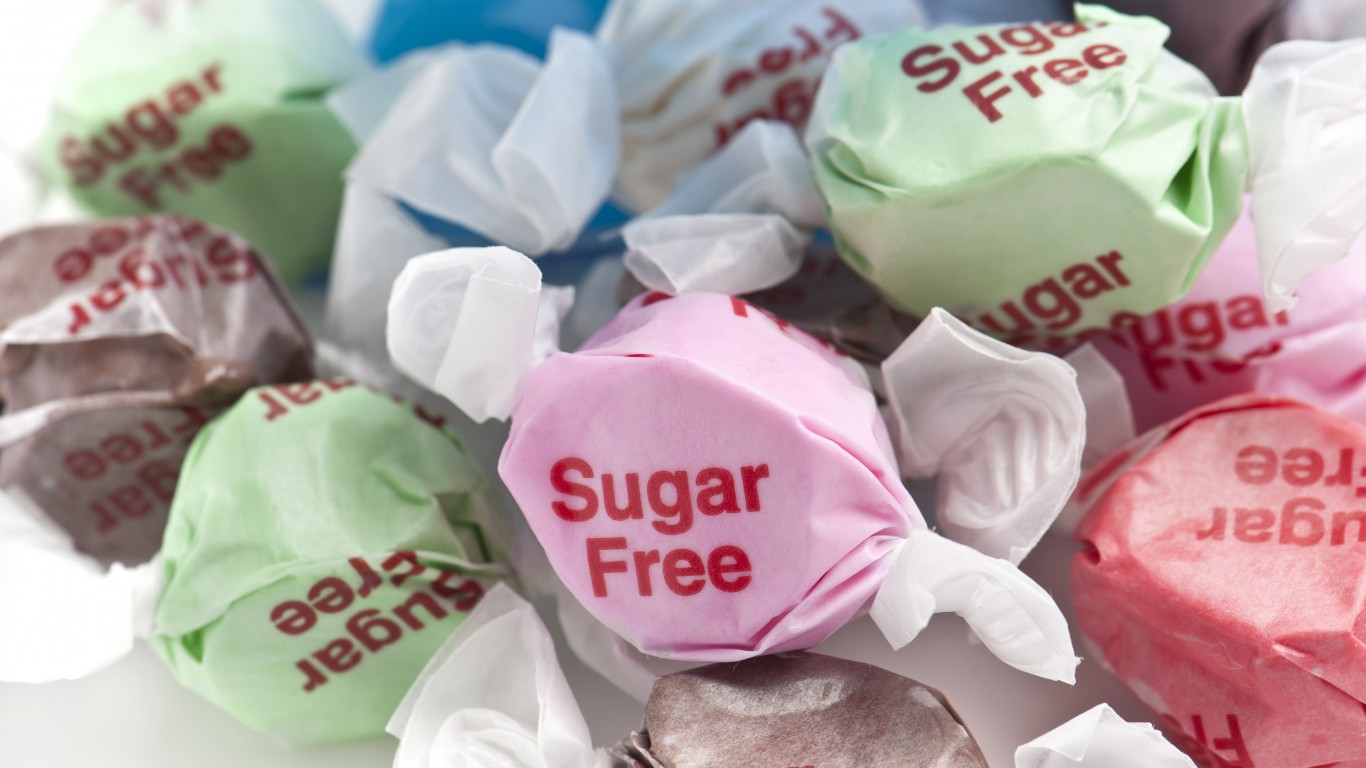
12. Sugar-free anything
“I don’t like sugar-free products because they are full of artificial sweeteners,” Rivera said. Sometimes artificial sweeteners can help reduce sugar consumption and maybe lower calorie intake, but for some people this might be a trigger food and can cause binge eating, she noted. “When trying to lose weight or just be overall healthy, it is best to stick with whole and less processed foods.”
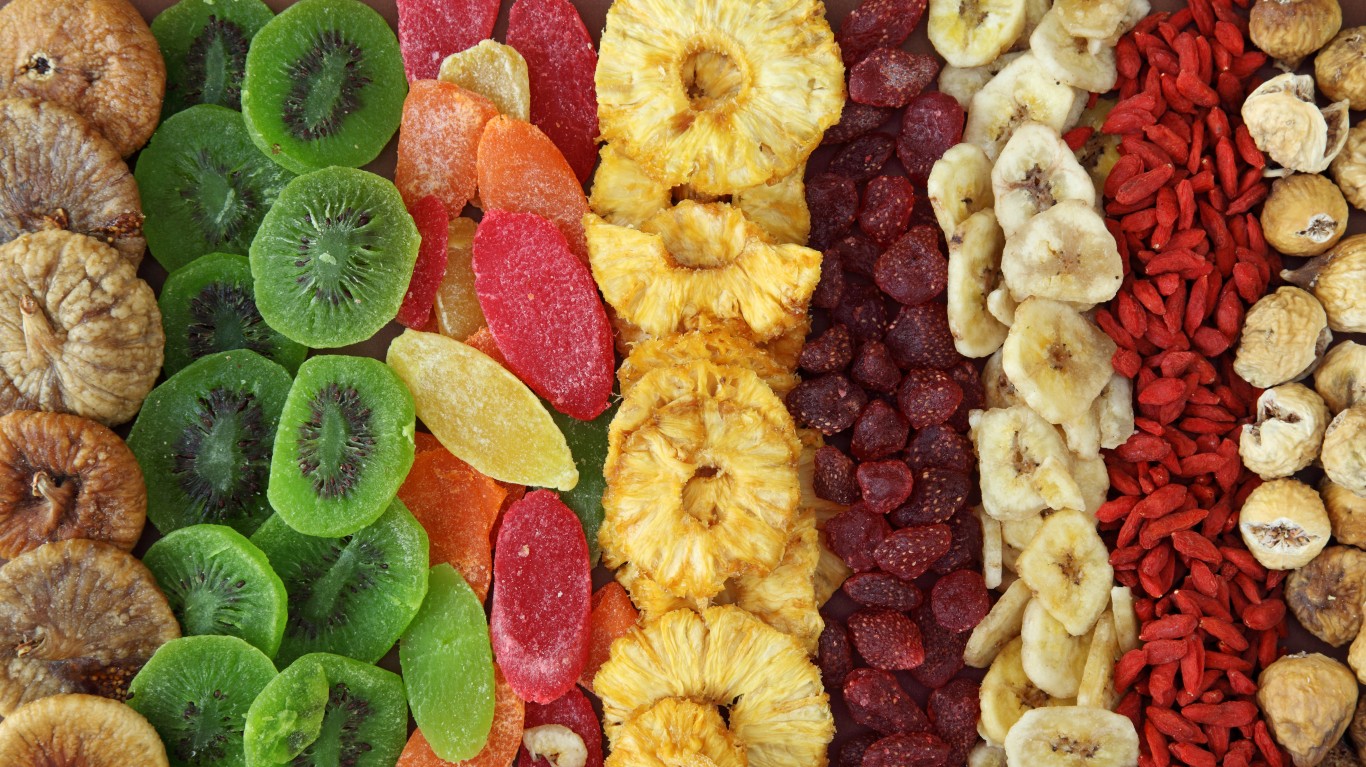
13. Dried fruits
Though fruits have natural sugars, dried fruit often has added sugar, said Jill Maher, a nutrition health coach in Scottsdale, Arizona. Theoretically, there are fewer calories in dried fruit compared with fresh fruit, but there may be significantly more sugar — and you’re missing out on the water content that makes you feel fuller, she noted. You can easily overeat because of their small size and lose the calorie benefit. Most dried fruits, which are a more concentrated source of nutrients, are made up of more than 50% sugar. High added sugar consumption has been linked to obesity.
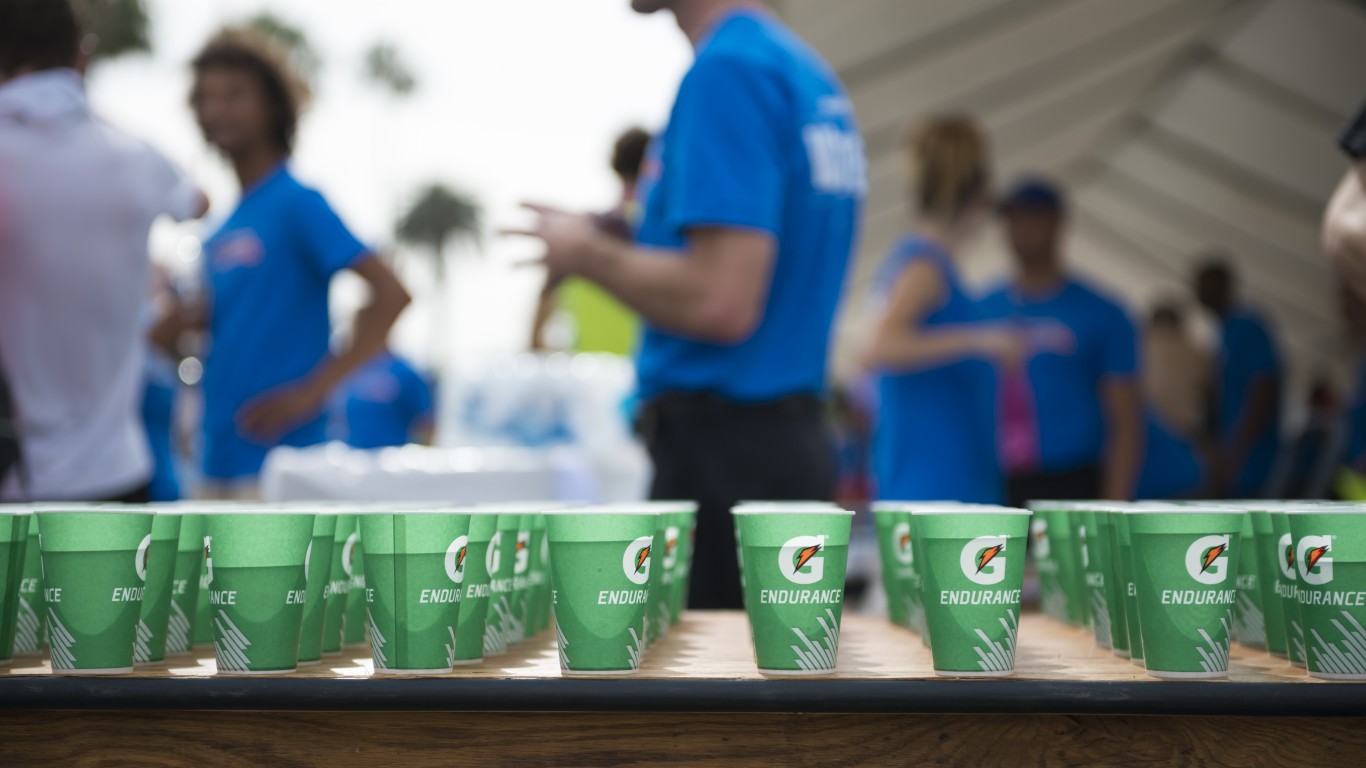
14. Sports drinks
Just 12 ounces of a sports drink can have as many as five teaspoons of sugar and a total of 90 calories. Experts at the Nutrition Source and the Department of Nutrition at Harvard School of Public Health advise that you only have sports drinks “infrequently and sparingly, if at all.”
[in-text-ad-2]
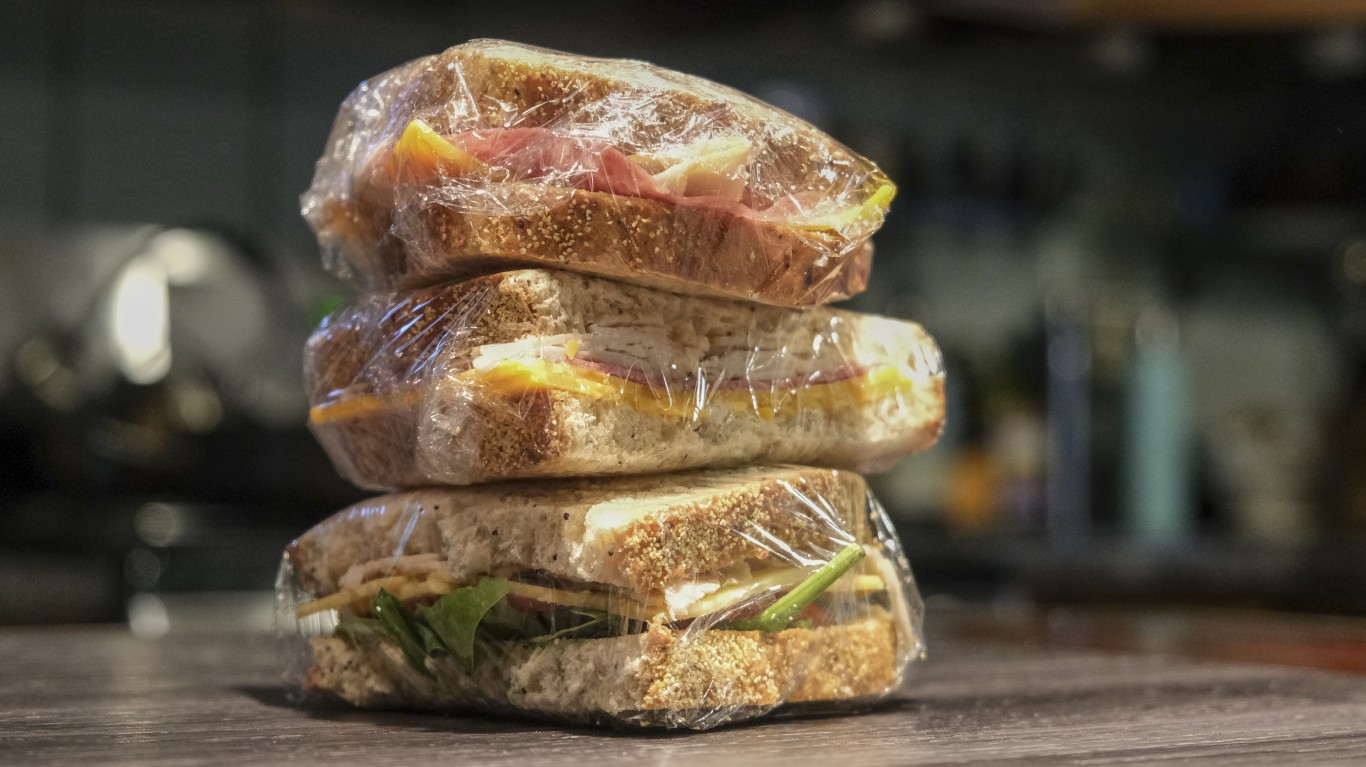
15. Pre-packaged sandwiches
Pre-packaged sandwiches are popular for summer picnics, but some have high levels of salt, fat, and sugar. Some sandwiches, especially those loaded with mayonnaise, are basically a high-calorie bomb. Avoid sandwiches with cold cuts, as they are full of nitrates and sodium. Also, pre-packaged sandwiches are often a day or more old.
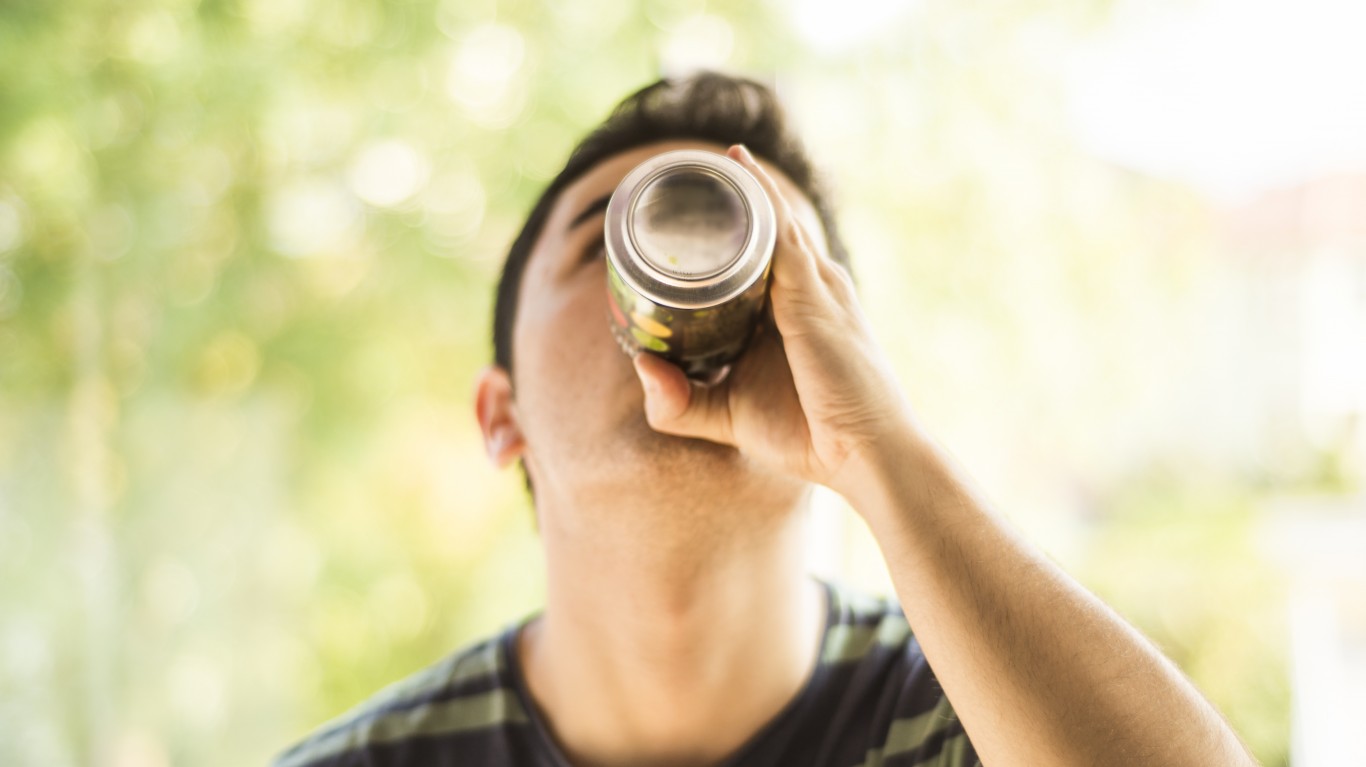
16. Soft drinks
Soft drinks have been suspected to be a “key contributor to the epidemic of overweight and obesity” in a medical review by the National Institutes of Health, because they contain so much sugar. Some research has even suggested that drinking just one fewer serving of soda per week can lead to weight loss.
[in-text-ad]
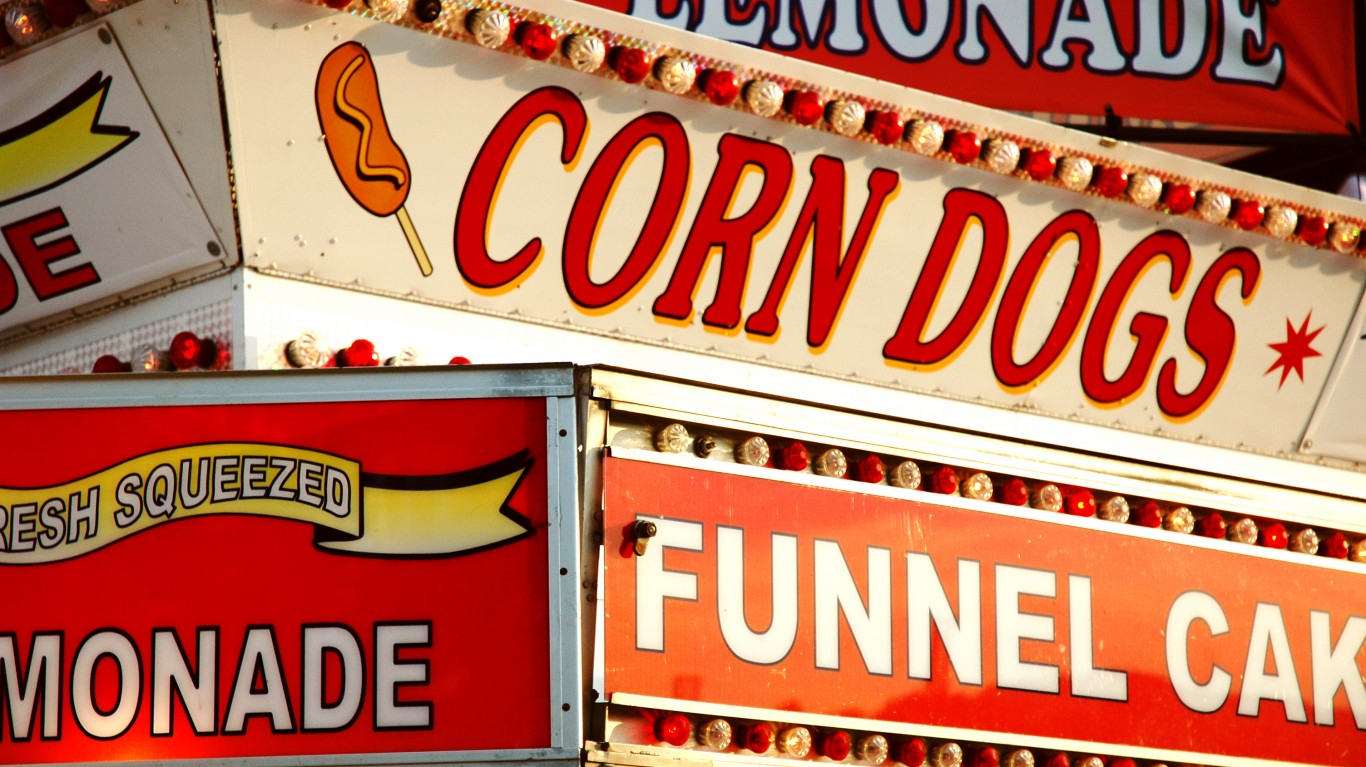
17. Anything fried
All kinds of fried foods are common in the summer, especially at state fairs. But fried foods, especially if fried in certain oils, contain trans fat. Trans fats tend to cause more weight gain around the stomach. The World Health Organization has recommended that all countries ban trans fats from being used in foods. Foods manufactured with partially hydrogenated oils in the United States will be fully banned effective Jan. 1, 2021.
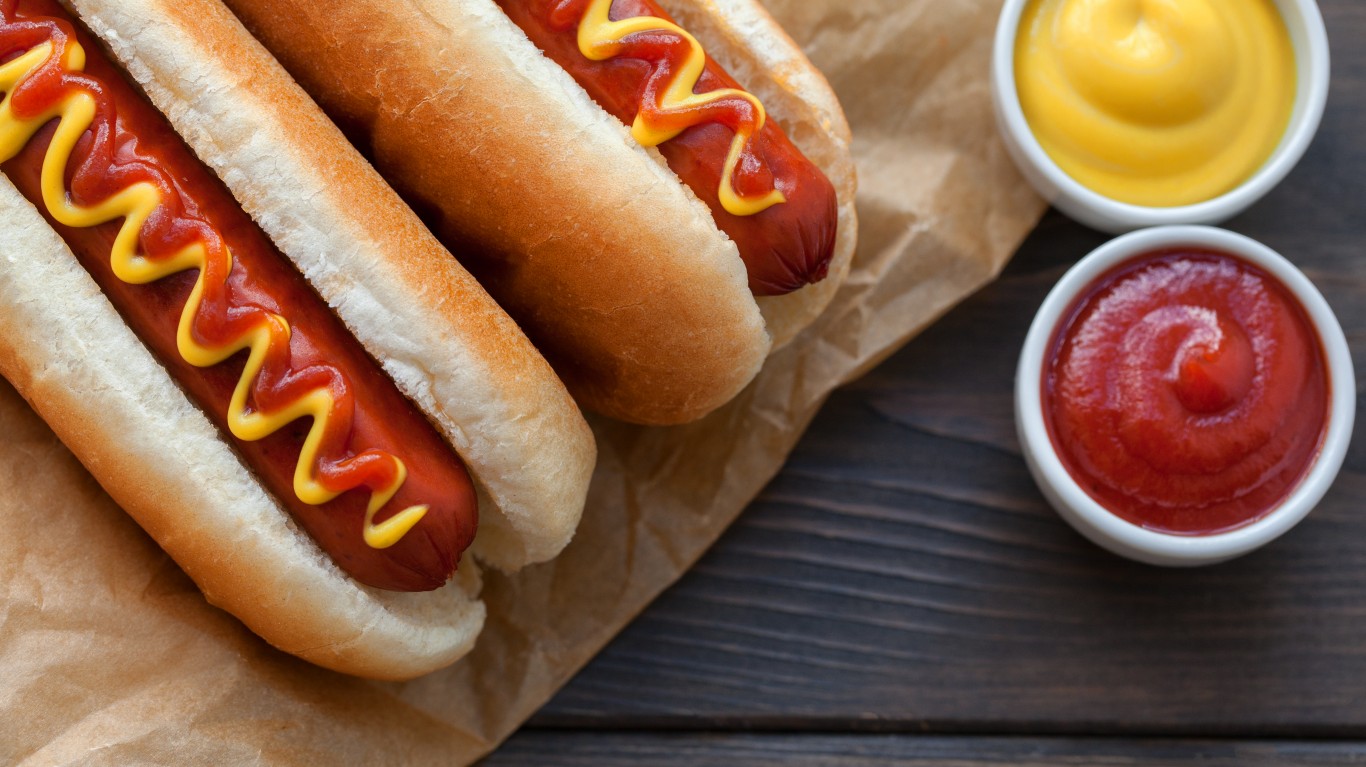
18. Hot dogs
Summer is the time for barbecues and hot dogs are always on the menu. But you’re not likely to find a health expert who will recommend them as a regular food choice because of their low nutritional value. A typical pork hot dog contains 155 calories and 14 g of total fat and more than 400 mg of sodium — and this is before you add the typical condiments like ketchup and mustard. And who eats just one and is done?
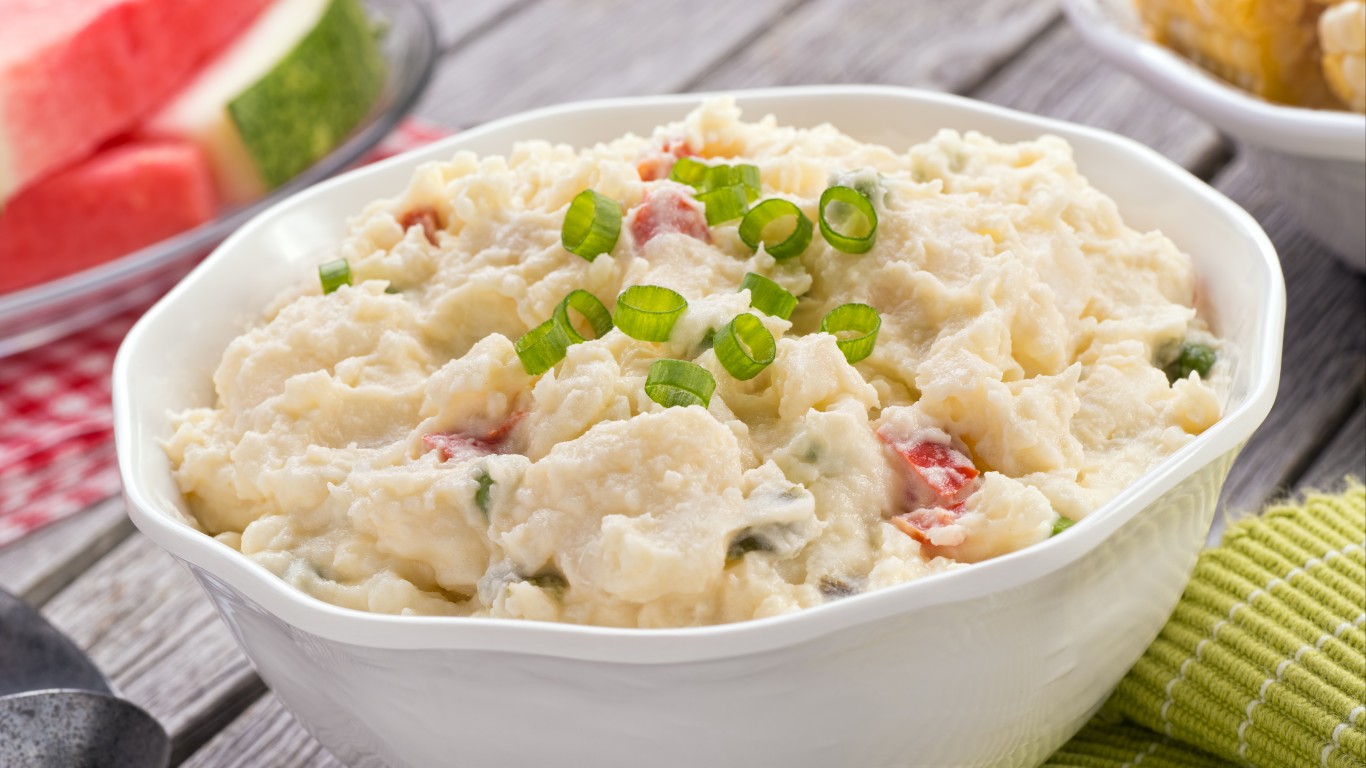
19. Potato salad
Hot dogs and potato salad just go together in the summer. While a delicious combination, it’s not diet-friendly. Most potato salad recipes, even the old-fashioned and classic ones, contain about a quarter of a cup of mayonnaise. Just one cup of potato salad, which is about 250 grams, contains more than 350 calories. Burning them off will take about half an hour of running or an hour and a half of walking.
[in-text-ad-2]
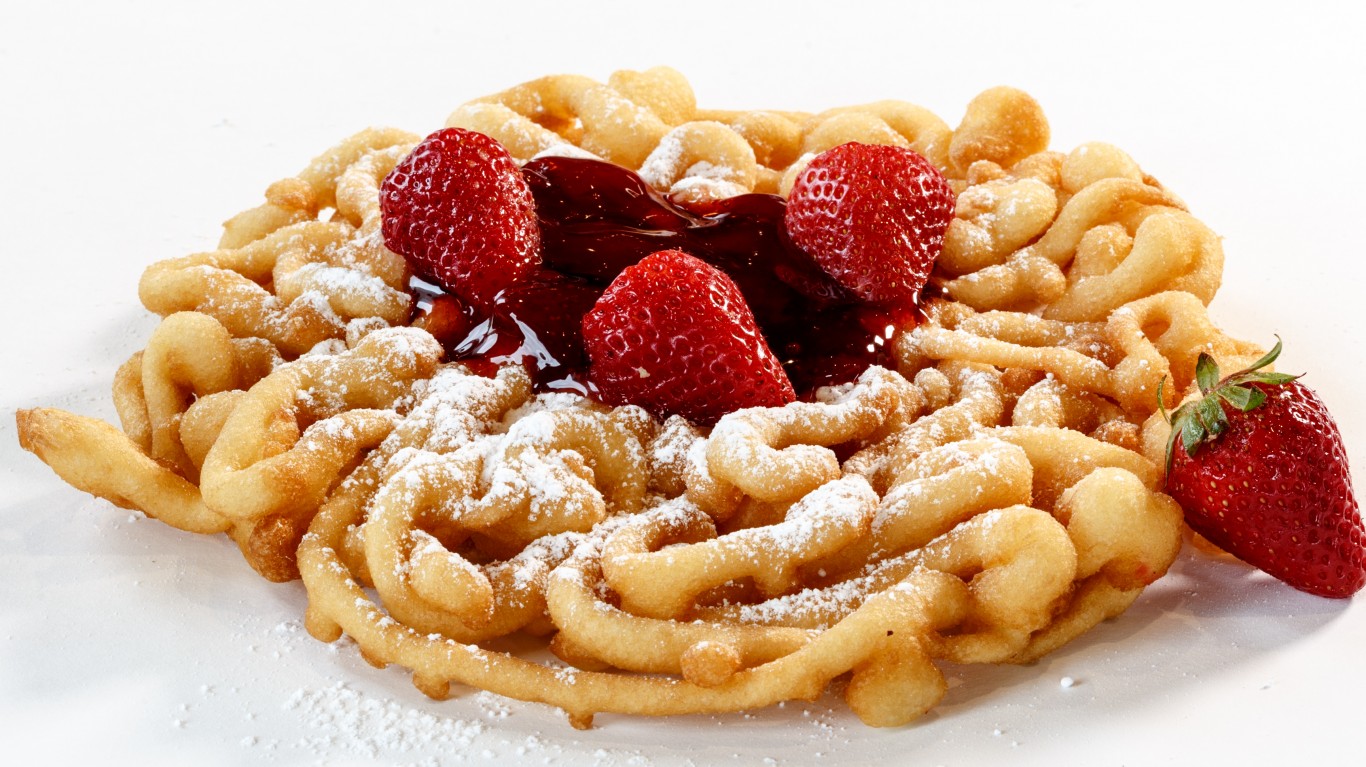
20. Funnel cakes
Funnel cakes are a staple in the summer, especially at carnivals, fairs, and theme parks. And even though they can be baked, and thus a bit healthier, they are typically deep-fried at such events. You can at least opt for fresh fruit instead of powdered sugar. The main ingredients are basically sugar and fat — or to be specific, eggs, flour, sugar, oil, and butter. Just one six-inch cake has about 280 calories.
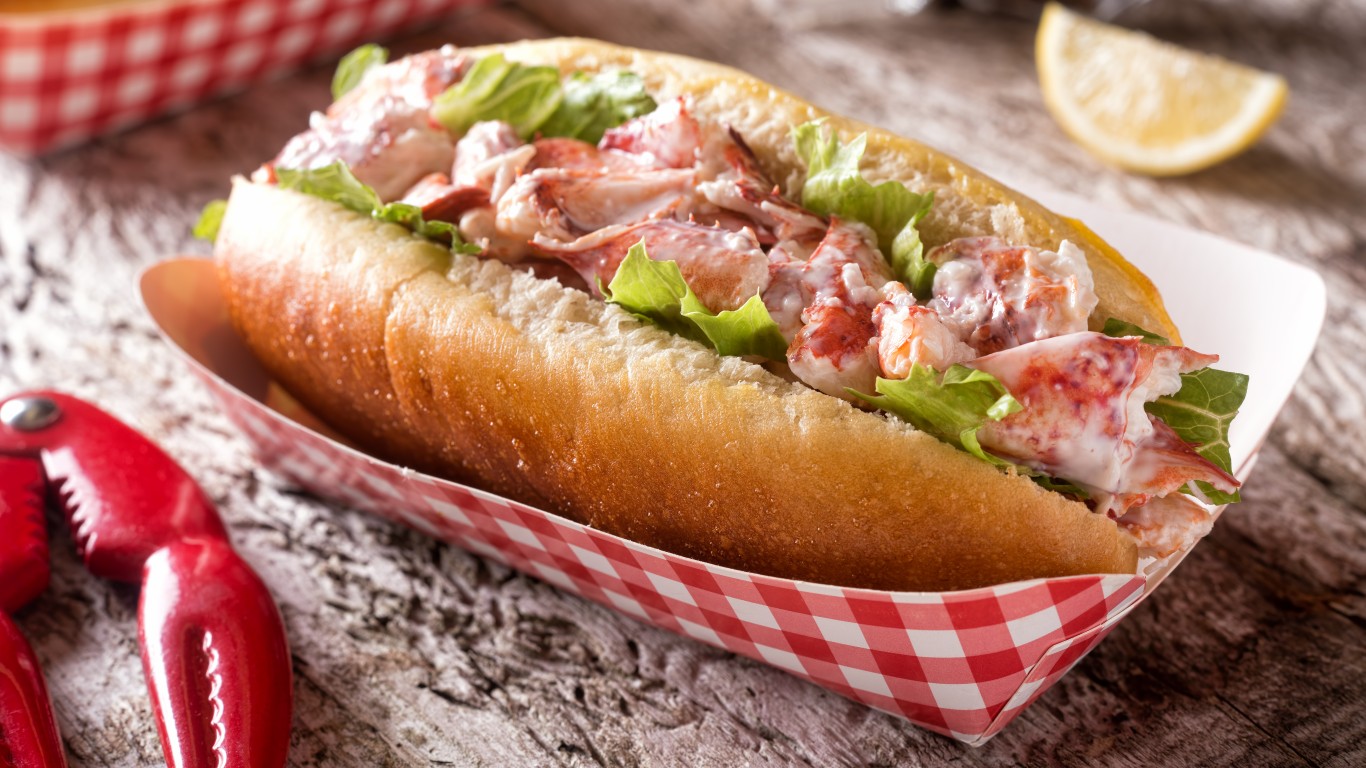
21. Lobster rolls
Lobster rolls are so popular in the summer they should probably be called “summer lobster rolls.” They are especially famous in New England, where they are thought to have originated. Lobster itself is a healthy fish. It contains the good kind of fat — omega 3s — as well as selenium, magnesium, protein, and no carbs. But the lobster roll has lots of other ingredients that are not so good for you — mainly butter and mayonnaise. And most people are likely to have a side too, such as fries or chips. And what could have been a healthy sandwich is now a caloric bomb.
[in-text-ad]
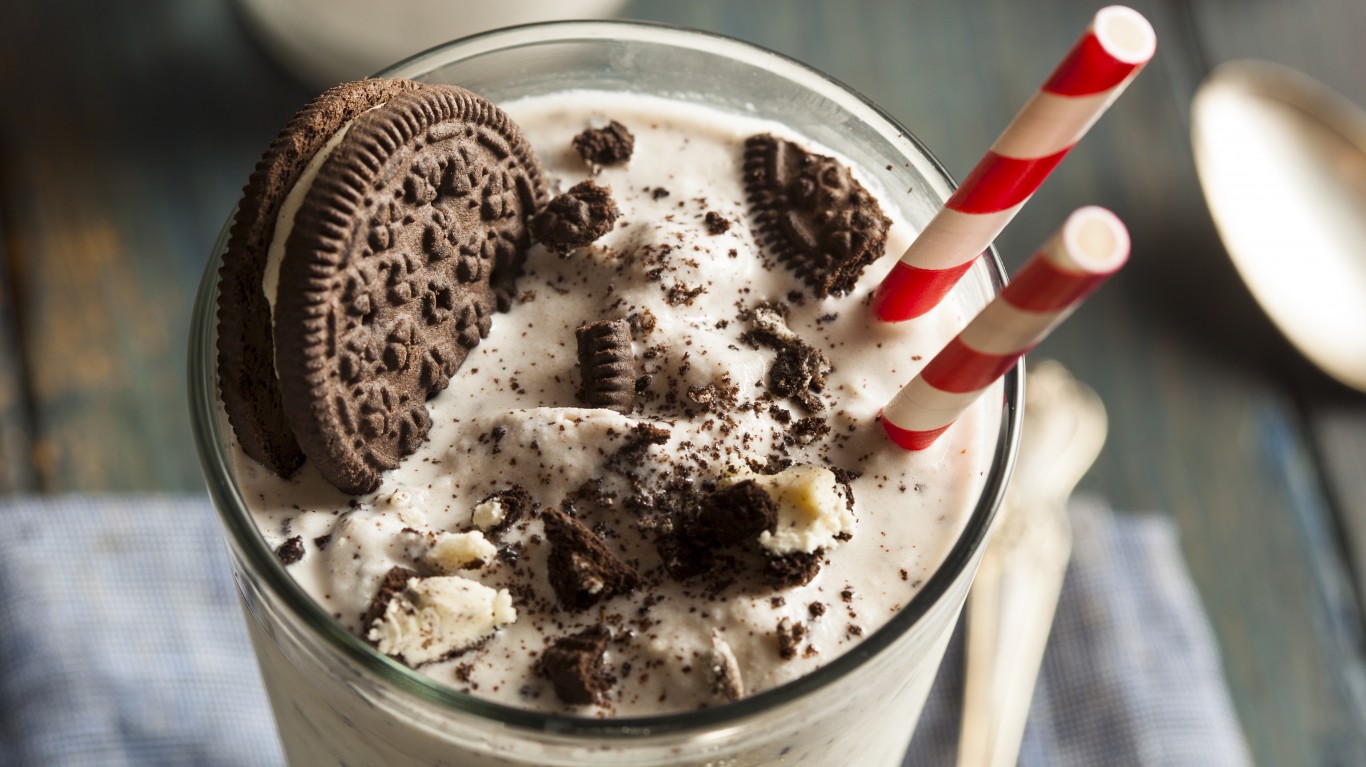
22. Milkshakes
Milkshakes comes in many flavors and recipes can vary greatly. Overall, those sold in fast-food restaurants should most likely be avoided if you’re watching your weight. Just one small cup may contain more than 500 calories — that’s about a quarter of the daily recommended limit of 2,000. The sweet dessert contains sugar and several cups of ice cream, as well as milk.
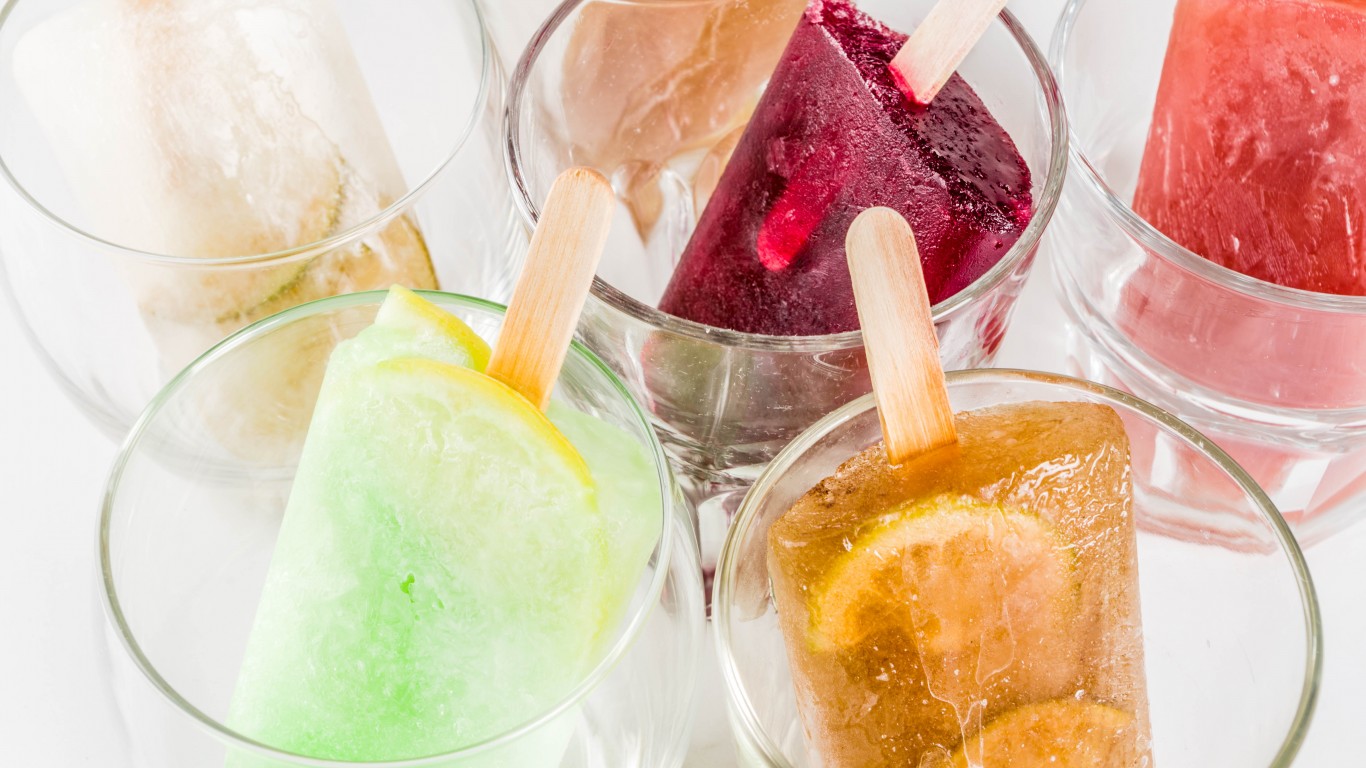
23. Popsicles
This is not the worst frozen treat you can have in the summer in terms of calories, but you should be aware of the sugar content. The treat contains basically no vitamins or other healthy ingredients. About a fifth of the popsicle is just sugar. And consuming sugar can make you want to have more sugar. So next time you might be reaching for a dessert containing even more sugar, calories, and fat.
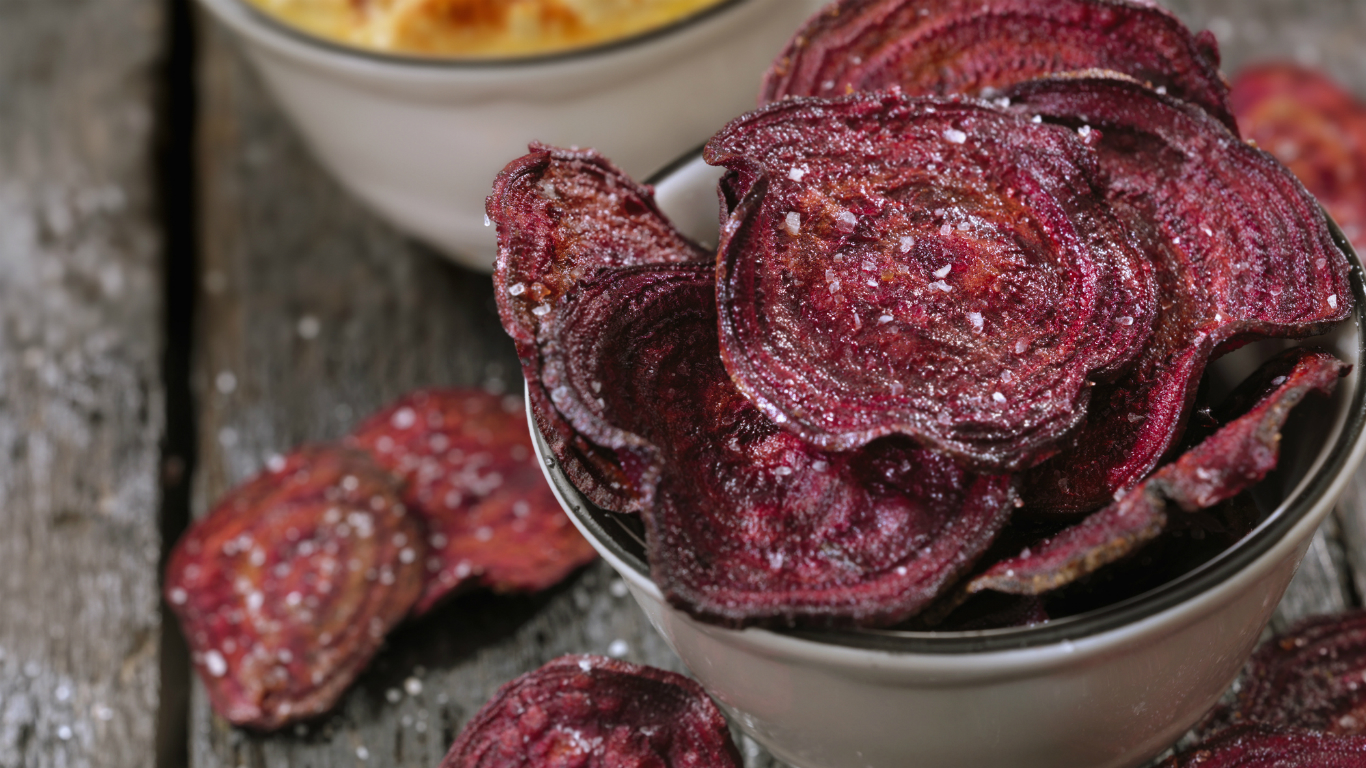
24. Veggie chips
Most people know fried potato chips are not among the healthiest snacks on the market. So they opt for a better sounding name such as “veggie chips.” But maybe they should steer clear of them too. “People think they are great because they see something that looks like vegetables,” Donovan Maycock, a nutritionist at Perfect Solutions, a nutrition and weight loss center in San Antonio, said. “But they are cooked in oil and heavily processed.” The healthy ingredients have been lost in the process. As the label indicates, there are no actual vegetables in the veggie chips, just vegetable powders, along with salt and one or more kinds of oil. Veggie chips contain just slightly fewer calories and a little bit less fat than potato chips.
[in-text-ad-2]
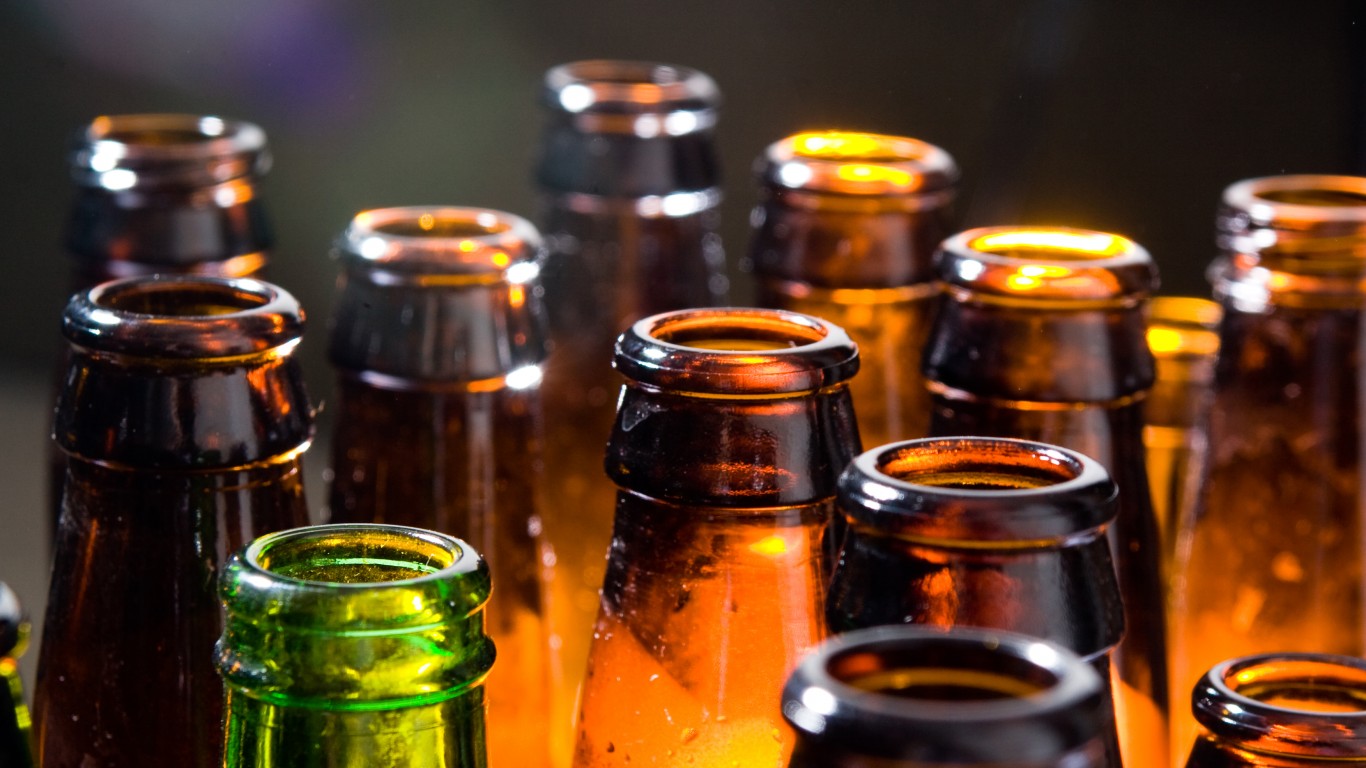
25 Beer
Ice cold beer is often the preferred beverage to beat the summer heat. But it falls in the category of drinks that contain “empty calories,” according to Younkin. “These foods and drinks have a lot of calories but not a lot of nutrients,” she said. “They don’t contain protein, fiber, healthy fats, vitamins, or minerals.” While it’s OK to consume such drinks in moderation, they should be avoided if you’re trying to lose weight but are not seeing any progress, Younkin noted.
Get Ready To Retire (Sponsored)
Start by taking a quick retirement quiz from SmartAsset that will match you with up to 3 financial advisors that serve your area and beyond in 5 minutes, or less.
Each advisor has been vetted by SmartAsset and is held to a fiduciary standard to act in your best interests.
Here’s how it works:
1. Answer SmartAsset advisor match quiz
2. Review your pre-screened matches at your leisure. Check out the advisors’ profiles.
3. Speak with advisors at no cost to you. Have an introductory call on the phone or introduction in person and choose whom to work with in the future
Thank you for reading! Have some feedback for us?
Contact the 24/7 Wall St. editorial team.
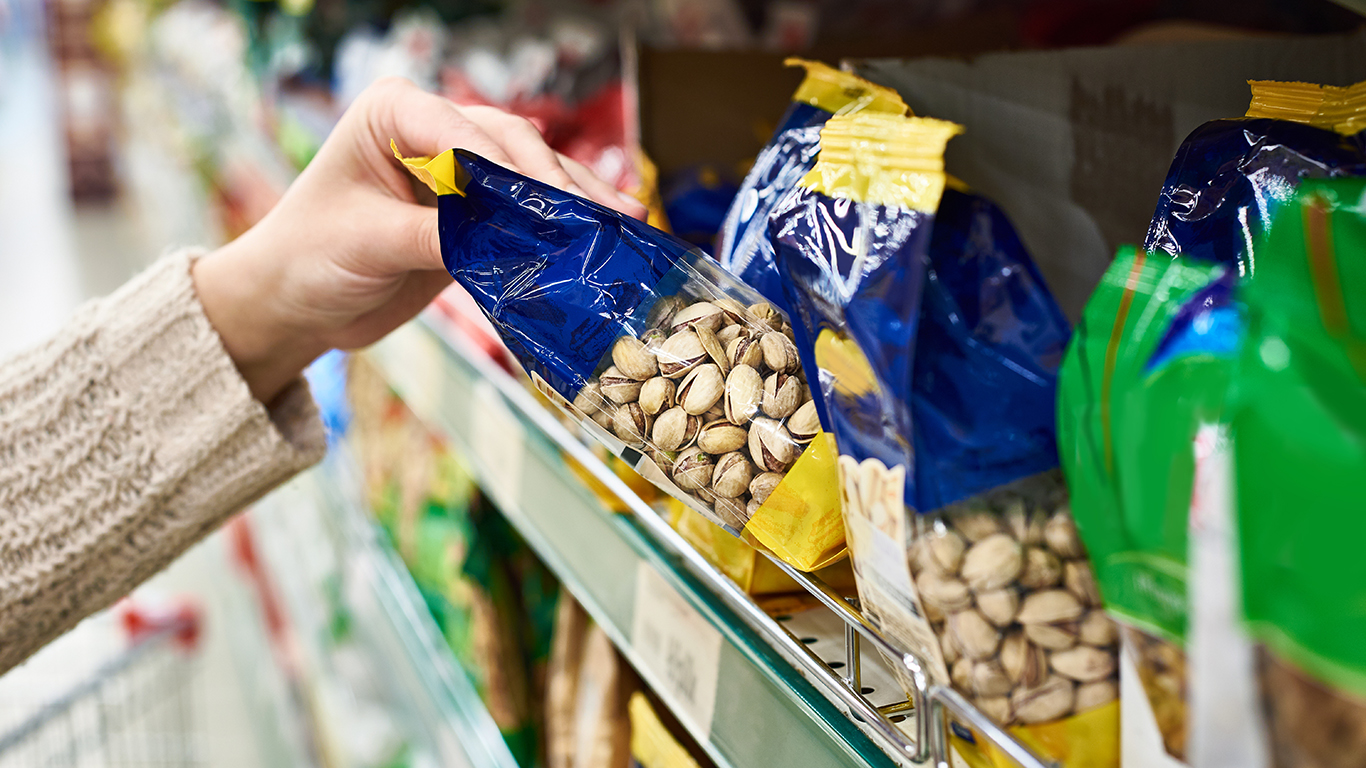 24/7 Wall St.
24/7 Wall St.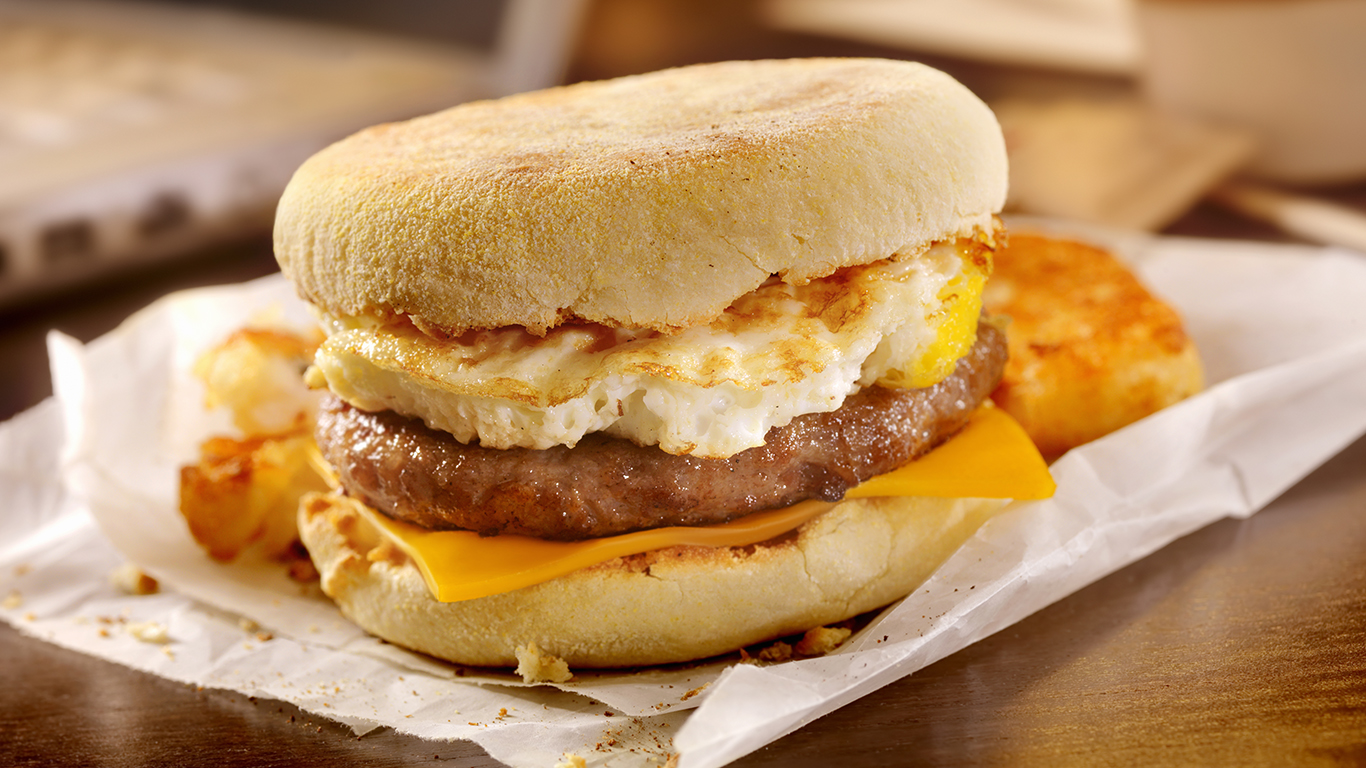 24/7 Wall St.
24/7 Wall St.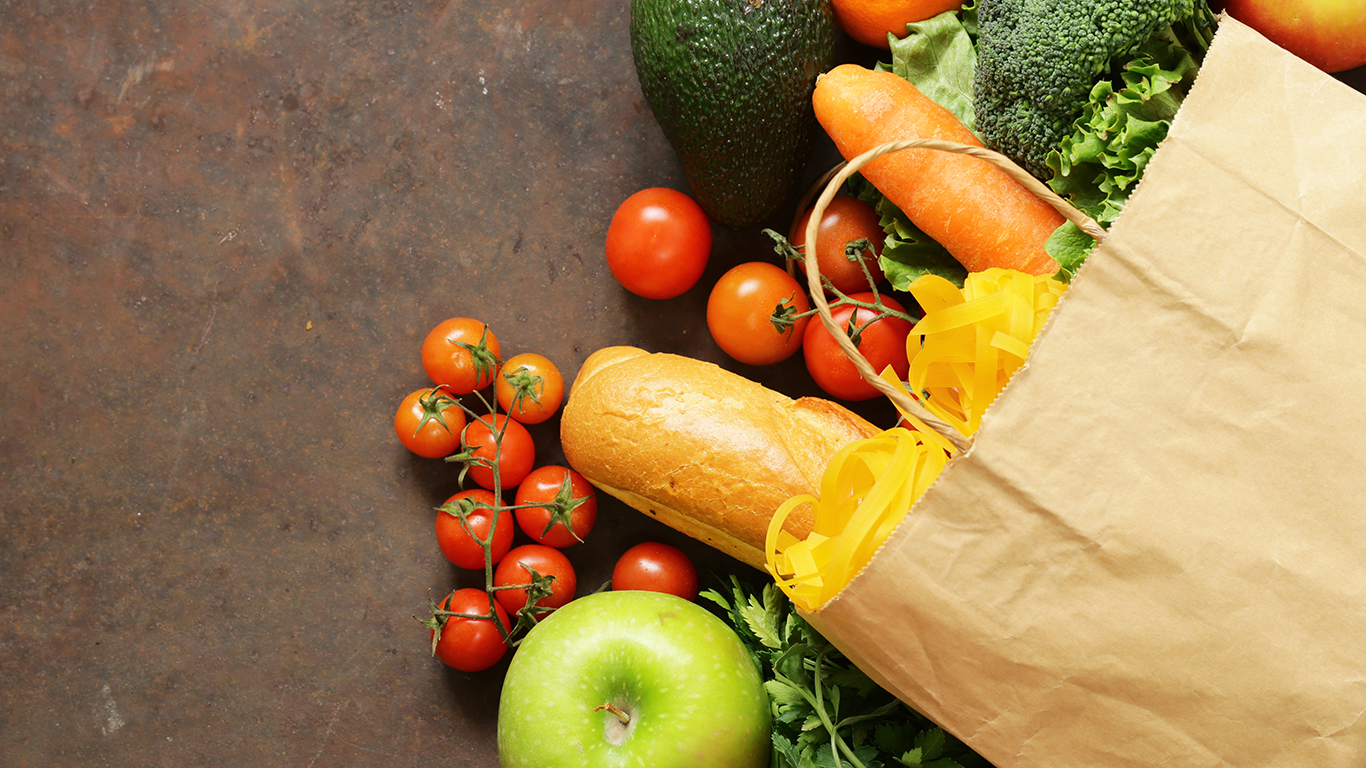 24/7 Wall St.
24/7 Wall St.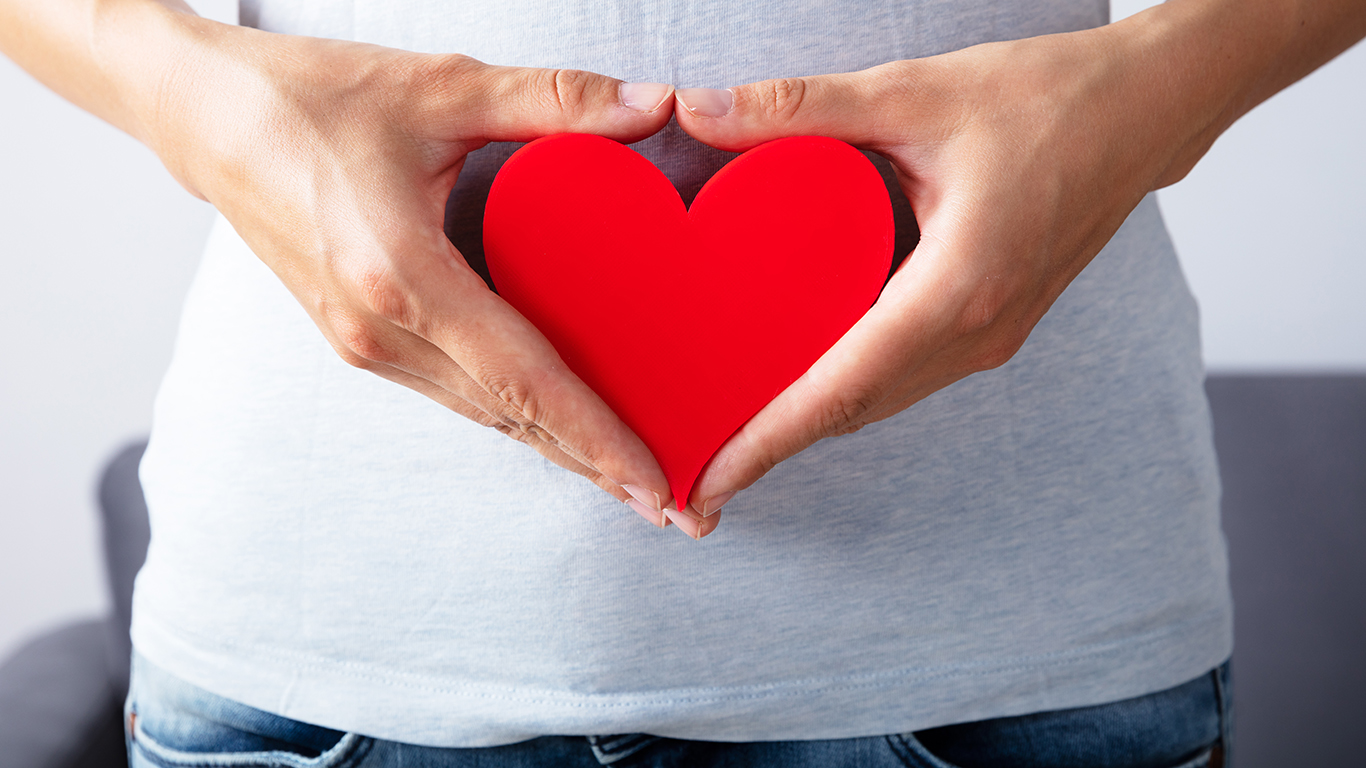 24/7 Wall St.
24/7 Wall St.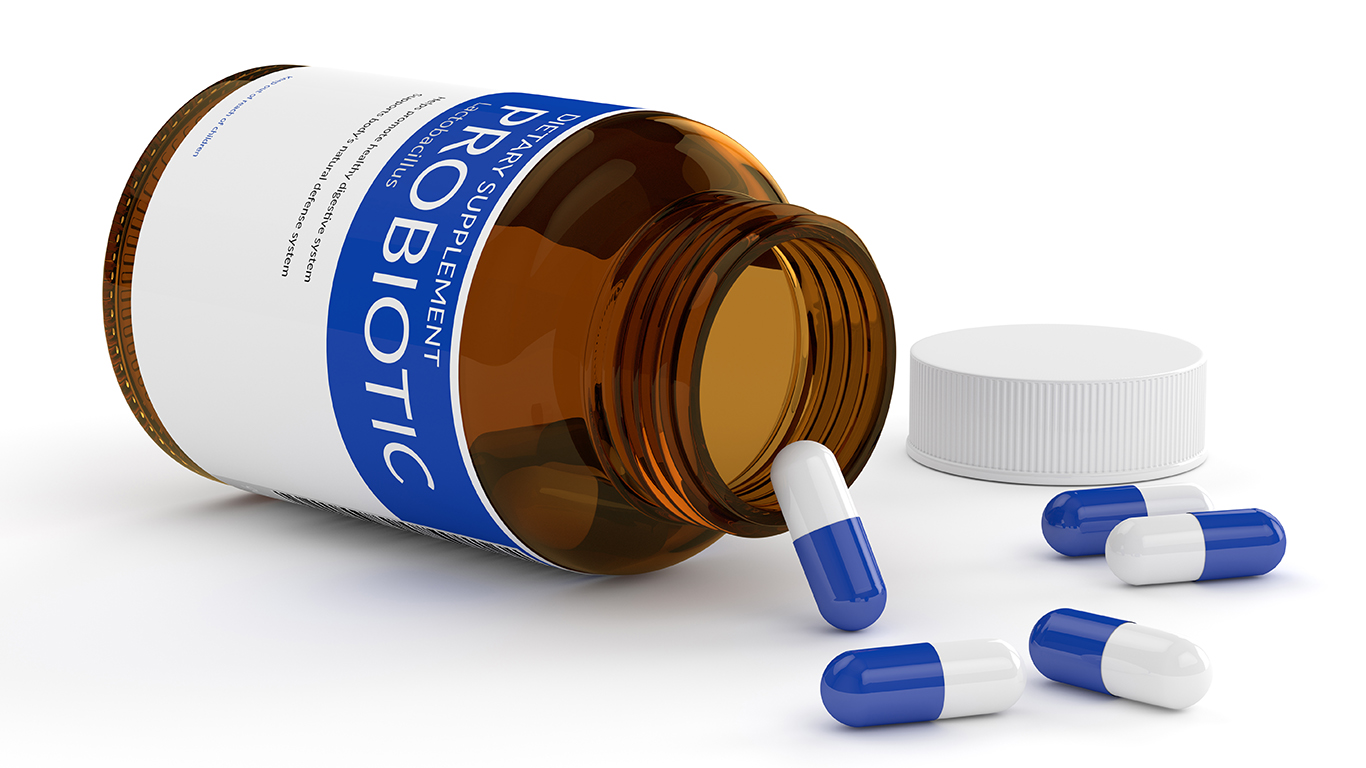 24/7 Wall St.
24/7 Wall St.
